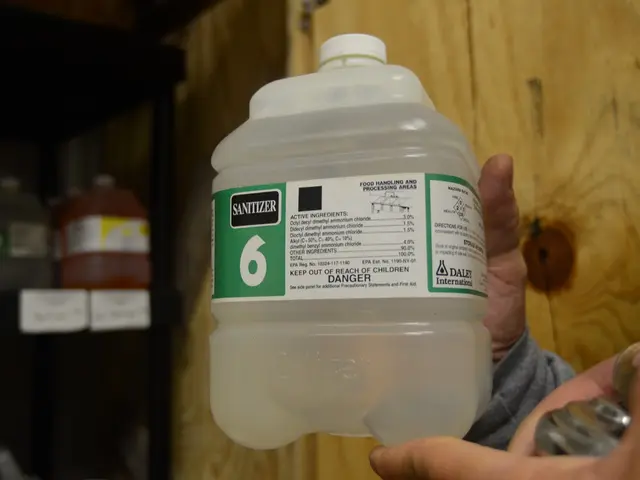Controversial figure Weinstein convicted partially in second trial.
In the City of Lights - Hollywood's Former Darling, Harvey Weinstein, Faces Partial Justice
New York City - In a now-familiarly fraught courtroom, the verdict's been delivered: Harvey Weinstein, the once-powerful movie magnate, has been found guilty, but only in part. The jury, after days of intense deliberation, convicted Weinstein of committing serious sexual crimes against one accuser, as per New York City's court ruling. However, he was acquitted of similar charges against a second woman, and the jury couldn't arrive at a consensus on a third count of rape involving a third woman. The judge then instructed them to continue their deliberations on this pending point. Recent reports have suggested internal discord and disparate opinions within the jury.
The 2020 conviction, littered with charges of rape and criminal sexual acts, was revoked last year due to significant procedural errors. The key issue revolved around the admission of numerous witness testimonies, not directly connected to formal charges, which allegedly influenced the jury's initial verdict in an unfair manner. This retrial focused narrowly on the primary charges while the prosecution put forth the testimonies of three women. They depicted a chilling narrative where Weinstein, a leading producer in the film industry, exploited his power to coerce these aspiring young women into sexual acts. Two of these women had testified in the initial trial, joined this time by a third key witness.
The emotional and harrowing testimonies from the women painted a picture of Weinstein using his industry influence to exert pressure. Weinstein declined to testify, while the defense called only a limited number of witnesses to cast doubt on the credibility of the prosecution's witnesses.
Despite the verdict in New York, Weinstein remains incarcerated. In 2023, he was given an additional 16-year sentence in California for sexual offenses. His legal team has since appealed both convictions.
Weinstein's health has been a matter of public scrutiny throughout the trial. According to his attorneys, he suffers from various chronic ailments, such as high blood pressure, diabetes, and heart problems. Media reports suggest a recent leukemia diagnosis as well. Judge Curtis Farber allowed him hospital visits during the trial.
The implications of the verdict for the MeToo movement are multifaceted. Allegations against Weinstein were first disclosed in 2017 and were seen as the catalyst for the global anti-male abuse of power and sexual misconduct movement. Since then, more than 80 women have publicly accused the once-powerful film producer (renowned for "Pulp Fiction" and "Gangs of New York") of utilizing his position to perpetrate sexual acts. The initial conviction was hailed as a watershed moment in both society and law, as the jury found Weinstein guilty based solely on the testimonies of the women, eschewing concrete evidence. Even the United Nations described it as a "significant turning point" in the fight against violence against women.
The reversal of the conviction perplexed many MeToo supporters, but the media attention for the retrial paled in comparison to that of the initial trial. Despite this, experts suggest the cultural shift initiated by the case, including advances in women's rights, remains unaffected by the legal decision.
Indeed, the verdict poses both a triumph and a cautionary note for the MeToo movement and future legal proceedings involving similar cases. The jury's guilty verdict validates the efforts of the MeToo movement, reinforcing their influence in encouraging victims to come forward seeking justice. Yet, the mistrial on the undecided charge demonstrates the challenges confronted by the movement, such as juror conflicts and the high burden of proof required in sexual assault cases.
The mixed verdict may set a precedent for future cases, serving as a guidebook for more nuanced legal strategies. Moreover, it underscores the significance of establishing juror safety and a secure deliberation environment, with potential increases in measures to safeguard jurors in high-profile cases. Lastly, the outcome may shape public perception, emphasizing the inherent complexities involved in sexual assault trials and the importance of continued support for survivors.
Ultimately, the partial guilty verdict in Harvey Weinstein's retrial signifies the need for continued advocacy and legal reforms to bolster victim support and ensure fair trials.
- The health-and-wellness of Harvey Weinstein, who was found guilty of committing sexual crimes in part, has been a matter of public concern due to his chronic ailments like high blood pressure, diabetes, heart problems, and recent leukemia diagnosis.
- In the realm of health-and-wellness, Weinstein's trial has shed light on the need for improvements in juror safety and secure deliberation environments, especially in high-profile cases, as the verdict's outcome may be influenced by internal conflicts within the jury.
- As the science and justice community grapples with complex sexual assault cases like the Weinstein trial, there is a growing emphasis on general-news reporting that educates the public about the intricacies involved and the importance of continued support for survivors while advocating for fair trials and legal reforms.








